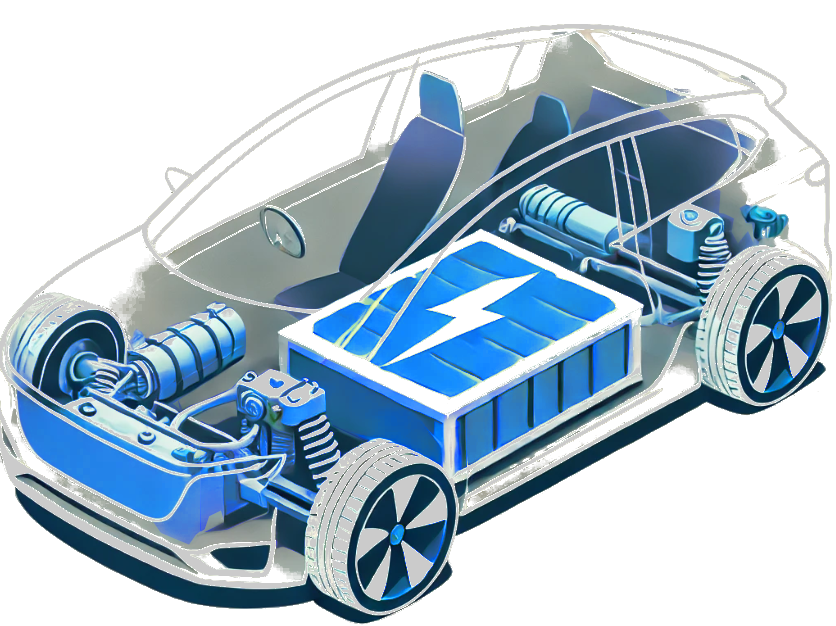your one-stop certification solution!
E-Mobility in India

E-mobility in India is characterized by various requirements that must be met by the respective manufacturers of vehicles and components. For manufacturers of batteries, cells and modules, there are numerous questions about costs, processes, procedures and requirements for the market in India due to the Indian standards and the requirements of the vehicle manufacturers.
Requirement Management
MPR International supports companies to review and assess requirements for e-mobility in India. Through our regulatory support, we ensure that you are aware of all the latest changes regarding compliance of products such as batteries, cells, modules, packs and systems. We help you to assess requirements from your specifications in terms of testing, registrations, certifications and monitoring obligations, and provide you with an overview of potential developments and associated costs. A regular review of regulatory and product-specific requirements is necessary to continue to meet requirements throughout the life cycle.
Product Tests for Batteries
To ensure that the complete vehicle complies with the technical requirements in India, vehicle manufacturers must provide evidence of the conformity of their products in the technical information sheet at the time of registration. Accredited test reports are required for this purpose. MPR works closely with various accredited laboratories and offers a comprehensive range of tests to meet the conformity requirements of your products.
Testing of Batteries:
Vehicle and battery manufacturers must provide evidence of testing at cell and module level.
Cells
Cells for traction/propulsion batteries must be tested and certified according to standard IS 16893 Part 2 and Part 3.
Module
Complete modules must be tested and certified according to standard AIS 038 or AIS 156, depending on the vehicle application:
- Traction battery 4-wheeler (category M & N) according to Standard AIS 038 Rev 2
- Traction battery for 2-wheeler / 3-wheeler (category L) according to Standard AIS 156
Certification
For traction batteries in e-vehicles, certification is mandatory according to the AIS 038 Rev 2 or AIS 156 standards (see table). In addition, the cells of the battery modules must be certified separately according to IS 16893 Part 2 and 3.
You can find more information on the page about AIS Certificaiton for automotive products for India.
Overview of standards incurred for batteries in India
| Type of battery | Standard |
| Battery for vehicles with combustion engine (12 V or 24 V system) | There is no mandatory certification requirement in India |
| Traction battery for 4-wheeler | AIS 038 Rev 2 |
| Traction battery for 2-wheeler / 3-wheeler | AIS 156 |
| Cells of traction batteries | IS 16893 Part 2 and Part 3 |
| Application for Li-ion batteries | IS 16046 |
Registration for Battery Waste Management
To ensure safe and ecological recycling of old batteries in India, the Ministry of Environment, Forests and Climate Change has issued an ordinance called “Battery Waste Management Rules, 2022”. These rules replace the previously applicable “Batteries (Management and Handling) Rules, 2001”.
All parties involved in the processing of waste batteries, including manufacturers, traders and consumers and institutions are covered by the new regulations.
The regulation covers all types of batteries, regardless of their chemical composition, shape, size, weight, material composition and use, including electric vehicle batteries, portable batteries, automotive batteries and industrial batteries.
You can find more information on our page about Battery Waste Management und EPR.
Conductive AC Charging Systems for Electric Vehicles
AC charging systems for e-vehicles are subject to certification to AIS-138 (Part 1) standard. This standard applies to the charging of electric road vehicles with standard AC voltages (according to IS 12360/IEC 60038) up to 1000 V and to the provision of electrical energy for additional services in the vehicle, if required, when connected to the utility grid.
Electric road vehicles (EVs) include all road vehicles (2, 3 or 4-wheelers), including plug-in hybrid road vehicles (PHEVs), that draw all or part of their energy from on-board batteries. Aspects covered include the characteristics and operating conditions of the supply equipment and connection to the vehicle, the electrical safety of operators and third parties.
Customs Clearance Services
For product testing and validation, test products (batteries etc.) often must be imported to India. MPR supports the process regarding customs clearance and transport in India. MPR offers consulting services regarding requirements for transport and import (product testing according to UN 38.3, requirements according to IMGD-Code or IATA-DGR (ICAO-TI), classification of Li-batteries (UN 3480, UN3481). MPR is also the importer for imports into India.
MPR Services
Your One-Stop Certification Solution.
Our complete package for product certifications for India.
Clarification of the relevant standards and information regarding the requirements of the Indian market
Selection of the appropriate test laboratory or authority
Determination of required test samples
Organisation of custom clearance
Product testing and support with supervising the tests
Complete organization of certifications (including audit)
Advice on all questions relating to registrations and marking regulations
Contact us!
MPR India Certification – expert consulting and implementation of certification projects worldwide.







